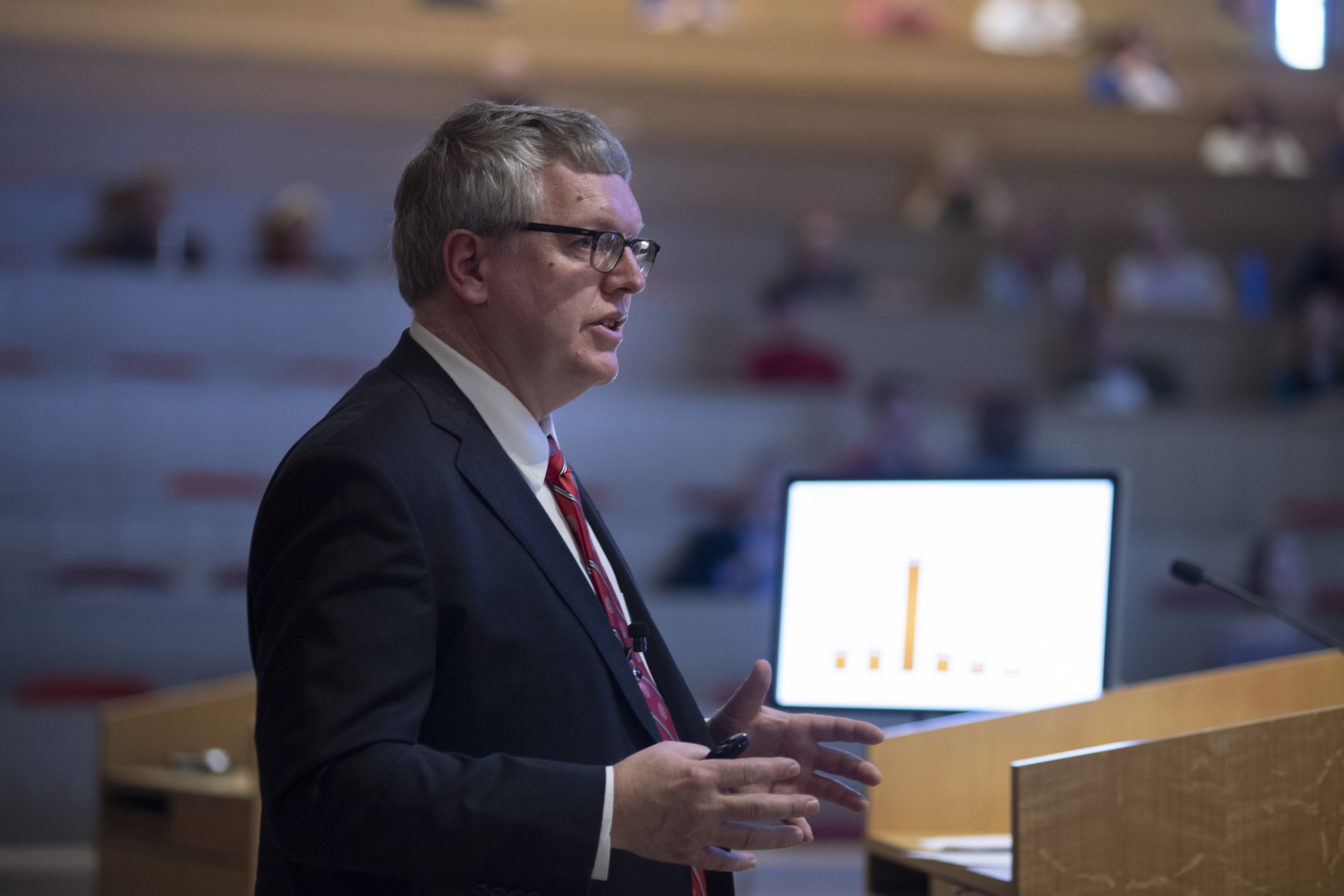Dean's message
 In the six months since writing my last message for ‘Scopes magazine, we have faced remarkable challenges and changes at the College of Veterinary Medicine. In this issue we share our community’s experience with the pandemic, and will detail how staff, faculty, students and alumni have dealt with these extraordinary difficulties to keep our missions moving forward.
In the six months since writing my last message for ‘Scopes magazine, we have faced remarkable challenges and changes at the College of Veterinary Medicine. In this issue we share our community’s experience with the pandemic, and will detail how staff, faculty, students and alumni have dealt with these extraordinary difficulties to keep our missions moving forward.
During this crisis, I met online with many different groups — students, faculty, staff alumni and deans from other veterinary colleges around the world. These conversations made one thing clear: While we all are living through the same crisis, each individual experiences it differently. As we navigate our own situation in this pandemic, we must recognize and empathize that others may have vastly different experiences and face different problems than our own.
The COVID-19 pandemic comes with painful costs and losses. There is the staggering loss of human life and the grief that comes with it. Alongside these tragedies, the outbreak has revealed flaws in our public health system, inequality in health care access, and other difficult truths in our society. One of the most painful is racial inequities in America. As COVID-19 disproportionately affected communities of color across the country, it also brought systemic racism into sharp relief. In the midst of the pandemic, the killing of Black people refocused millions of people throughout the world on the need for racial justice and police reform.
As we have faced these crises — a health crisis, the resulting financial crisis and a racial justice crisis — we know we cannot solve everything as a college. Yet we are determined to solve what we can, here and now, while striving to serve the public, our students, New York state and our interconnected world.
To address the ongoing COVID-19 pandemic, we are taking a science-based approach to keep students, staff and faculty safe. Our biosafety policies have been in place for essential workers since the beginning of the outbreak and have successfully protected our community. Through testing, social distancing, mask requirements, new workflows and decreasing occupancy, we will continue to make safety a top priority. As you will read, this issue of ’Scopes highlights the admirable responses of our community members that have made this possible.
“...We know we cannot solve everything as a college. Yet we are determined to solve what we can, here and now, while striving to serve the public, our students, New York state and our interconnected world...”
Prompted by national events, we have also been actively looking to address racism within our own college and community. This work is integral to our core missions of veterinary education and research. Without diverse perspectives and multicultural communication, we will never truly improve access to veterinary services, or achieve human health care and biomedical research that benefits all people.
It has been encouraging to see our college students, staff, faculty and alumni have open discussion about their experiences around race and racism. This summer our community is agreeing on actions to improve the experience of people of color in our college, increase racial equity in our education programs and employment and to serve the public more effectively. While many among us have been working diligently over many years on equity and inclusion, we are renewing our efforts and will work together for greater impact. We will share our plans in the coming months.
As a result of pandemic disruption, the university is facing serious financial constraints and the college must manage carefully to ensure continuity in our programs and strategic goals. Along with the rest of the university, we have needed to constrain spending, postpone capital projects, limit hiring and temporarily reduce salaries for staff and faculty. We did not take these actions lightly, but with the goal of preserving jobs and benefits, supporting our students and fulfilling our college missions.
While countless things have changed in the past six months, and as we face unprecedented change as we move into the fall 2020 semester, much is constant: We remain dedicated to our missions, our faculty continue to work every day to provide an excellent education for our students, we use evidence and science to guide our decisions, and we uphold that connection, empathy and kindness are paramount despite distance and fear.
The strength of our college community over the last few months has made me more grateful than ever for the privilege of serving at the Cornell University College of Veterinary Medicine.
Sincerely,

Lorin D. Warnick, D.V.M., Ph.D. ’94, Austin O. Hooey Dean of Veterinary Medicine •


